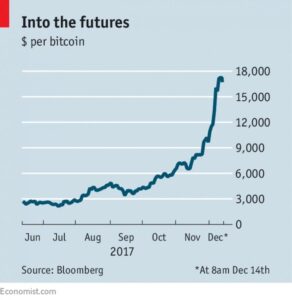Note: I started writing this blog post in June 2020, when many American politicians had decided to begin reopening their economies. This was based on economic and political factors, not public health or science. Since then, the pandemic caused a second spike in the U.S., especially in Southern states that were the first to reopen such as Texas and Florida. Although many reopenings have since been slowed or reversed, the political calculations around reopening continue to play a large role in decisions that are affecting millions of people.
The desire to reopen again is understandable. We all crave normalcy. But “normal” before COVID-19 was not that good. A quick reopening without addressing major systemic breakdown will leave in place the systems that cause these “other pandemics:”
- Climate
- Racism
- Economic injustice
- Ailing Democracy
By referring to them as “pandemics” I don’t mean to downplay COVID-19. By the time this is published, well over 18 million cases and 700,000 deaths globally, nearing 5 million cases in the U.S. and over 150,000 deaths there, and more than 30 million people unemployed in the U.S., where health insurance is tied to their (nonexistent) employer. COVID also comes with a terrible disproportionate impact on racial and socioeconomic lines. COVID-19 seems more urgent because people are dying everyday, visibly right in front of our eyes. But what if we called these other problems:
- CLIMATE-19
- RACISM-19
- ECONOMIC INJUSTICE-19
- AILING DEMOCRACY-19
Not sure what the “19” stands for in those, but it certainly sounds more threatening, right? They are killing people everyday. There are “hockey stick” curves for the indicators of CO2 emissions, police-involved shootings, disparities in income inequality, voter suppression, and more. We need effective treatments for these other pandemics too. Reopening Blues refers to the feeling that COVID will be solved, and the media will announce victory, but these other problems will persist and even deepen.
The powers-that-be want to reopen quickly to prevent the mass protests that have the potential to upend the status quo. The Overton Window has already shifted more in the last few months than in the 20 years that I have been an activist.
The question is, will we be able to achieve systemic solutions instead of half measures or symbolic but meaningless “show” achievements that do not help people in tangible ways. This is a rare chance for systemic change. Like in a labor union strike, the discomfort of the elites is a precious bargaining chip.
Yes, we must change the names of high schools and Army bases. Yes, we must take down the statues. But there is more to do, and a quick reopening and return to the status quo will prevent that, and they know it. If we miss this opportunity, we will have to wait for the next crisis to implement major changes, and I don’t want to have to root against humanity.
Here is a spectrum of changes listed in order of political difficulty from easiest to hardest. Let’s get as many of these as we can before we reopen, so that the hard ones will get easier next time.
Easy
- Increase telework.
- Change tourism, make staycations cool. Less flying, more exploring within 100 miles.
- The next step beyond food delivery is Community Supported Agriculture (CSA). Farmer’s markets are another option for going local. More local buying puts fewer people in harm’s way.
Medium
- Green New Deal, economic stimulus. This is easier than capping greenhouse gas emissions, but is not a substitute. Emissions could still rise under even the most generous Green New Deal, if there is no cap on emissions.
- Test out basic income and job guarantee. This should be a top priority for anyone who claims to be a progressive. And tests and pilot programs are medium difficulty, not hard!
- Raise the minimum wage!
- Look at alternative economic indicators beyond GDP.
Hard
- CapGlobalCarbon.
- Change the economic system, reform the banks (taking on the greed of the 1%).
- Permanent basic income.
- Abolish the debt and interest rate.
I’m not saying things have to stay closed until we get all of these things accomplished. I’m just saying that we are in the midst of multiple crises, witnessing our systems breaking down. These are the types of things that can fix our broken systems, and put us in a better spot for the next round of crises after COVID. If we settle for small changes now, then we may have to wait for the next crisis to get around to making big changes, and that’s giving me the Reopening Blue






